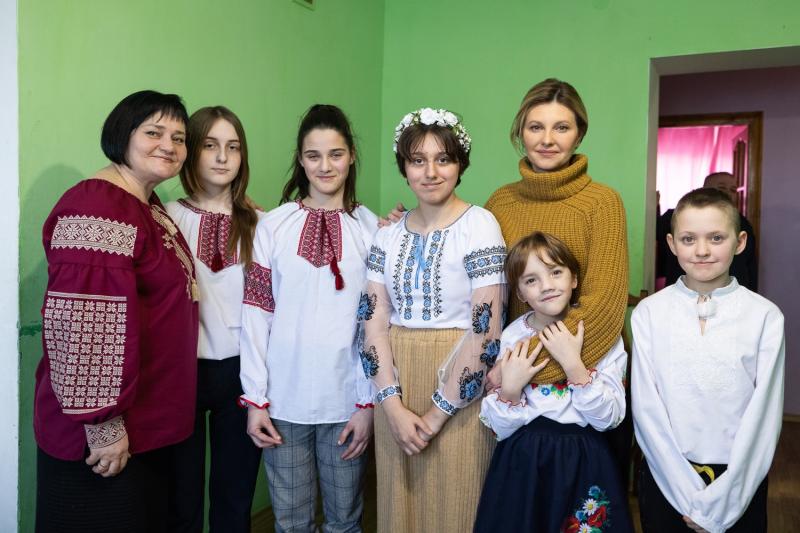From "family-style" orphanages to clinics, Ukraine’s first lady Olena Zelenska makes a plea for aid and urges allies not to forget the war
We held on. We are holding on.
This is what Olena Zelenska tells everyone who asks about the war with Russia.
“Many people told us that Ukrainians would not survive this winter, but as you can see, we continue to fight and recover, and hope is growing,” Zelenska, the first lady of Ukraine, says during an interview with the European Investment Bank from Kyiv. “Ukrainians are holding on, but they are getting exhausted.”
Zelenska, who has two children and is an architect and screenwriter, focuses her work during the war on raising funds to meet Ukrainians’ basic daily needs. For her, this involves healthcare, shelter, humanitarian aid, childcare and education. She created the Olena Zelenska Foundation last year to funnel more global aid to these issues. In March, the EIB Institute, the philanthropic arm of the European Investment Bank, donated €800,000 to her foundation.
This donation is helping more than 2 000 children in 280 orphanages around Ukraine. “From the very beginning of the invasion, in the first months, we started receiving requests for help from family-type orphanages,” Zelenska says, explaining that these types of homes are run by regular families that each adopt five to 10 children who lost parents. The EIB Institute funds are helping these households buy appliances, clothes, groceries, toys and “everything a family needs to live these months peacefully,” she says.
The war greatly increased the need to care for children who don’t have parents. The foundation’s ultimate goal is to find permanent homes for orphans. It is raising money for a pilot project to build 10 family-type orphanages for children from families that lost their homes under shelling or because they had to leave during the occupation.
“We are caring for the future generations of Ukrainians,” Zelenska says.
- Read how two major EIB funding packages are rebuilding Ukraine.

Olena Zelenska (right) visiting the Paskevich family in the Lviv region, which has adopted 8 children.
Problems grew every day
When the humanitarian problems started growing every day after Russia’s invasion, the many offers of assistance from abroad gave Zelenska the idea of creating an aid foundation.
“There were many requests to help Ukraine,” she says. “My main task, the foundation’s main task, is really to accumulate aid. And I hope I succeed.”
The foundation is also using funds to:
- renovate medical clinics and provide medicine and medical supplies
- keep people working by giving them new office space
- make sure children attend school by repairing public buildings and providing bomb shelters
- offer grants for training and scientific research
- support a mental health programme for Ukrainians suffering from the horrors of war, including people who have become disabled.
How not to fall apart
Keeping electricity and gas supplies operating has been one of the most critical issues this winter in Ukraine, Zelenska says.
“It’s incredibly inspiring to see Kyiv illuminated with lanterns in the evening,” she says. “This means we are standing our ground.”
Everyone is working, she adds, some in the trenches in the military and others in offices and others on the streets, and children are going to school. “Working keeps us from falling apart into little pieces and it inspires you to get up in the morning.”
There is still a big need for foreign support, Zelenska says. This help, in the form of financial or military aid, or the daily public statements from leaders around the world, encourages Ukrainians to keep fighting.
“Our economy is not designed for such significant losses as we see today,” she says. “We still need to hold on for a long time, and we have to prepare for the fact that help will still be needed.”
There is an impression among some Ukrainians, Zelenska says, that parts of the world are beginning to forget that the war is still raging.
“By forgetting about Ukraine now, people also forget about their own future,” she says. “We all of course are waiting for victory. We are all sure of it. To get it, we still need to work a lot.”
- Read why Ukraine’s mayors are requesting more aid for schools and education.
